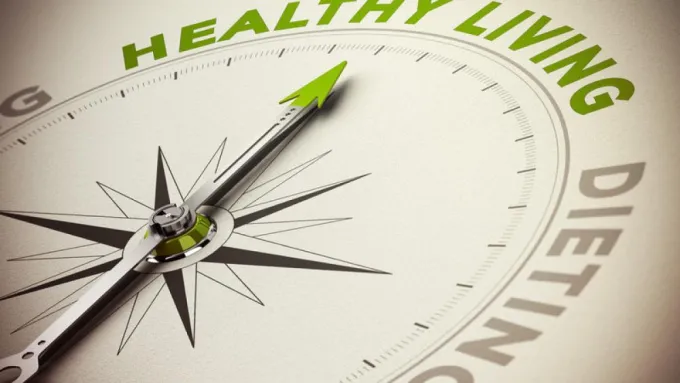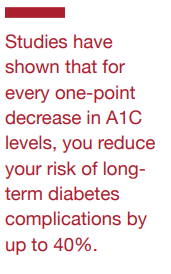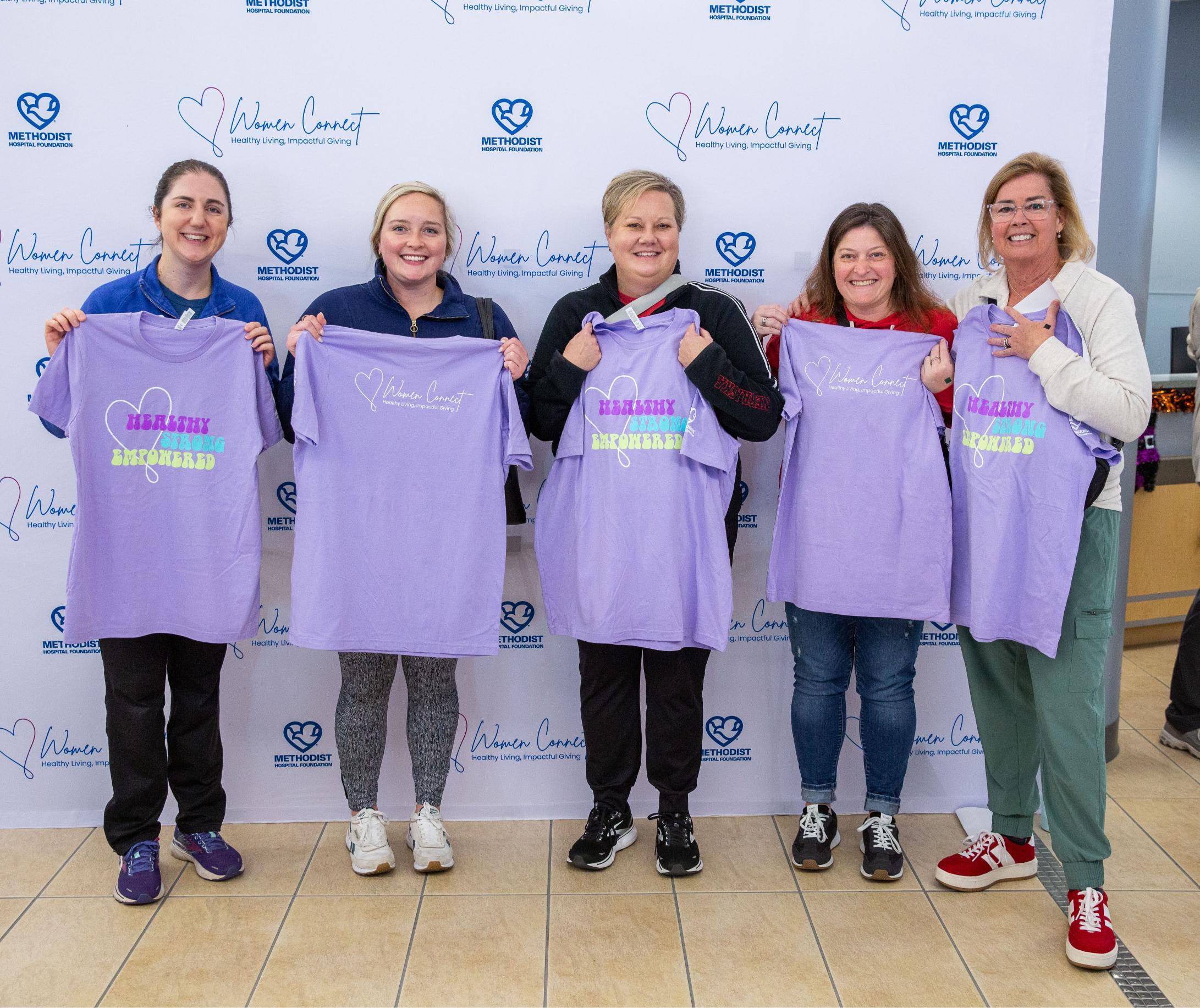
Women Connect
Becoming Your Healthiest You - Resources

To ensure you have this important information at your fingertips, we're providing eco-friendly online resources from our Women Connect Becoming Your Healthiest You event.
What a fabulous morning! We appreciate everyone who made time to join us for our expert Q&A, free A1C testing, live cooking demonstration and more!
A special thanks to our expert panelists:
- Alicia Birky – Physical Therapist, Methodist Hospital
- Dr. Melissa Hernandez – Internal Medicine, Methodist Physicians Clinic
- Roxanne Wayne, LIMHP – Methodist Community Counseling Program
- Deborah Willcox – Chief Clinical Dietitian, Methodist Health System
Takeaways from our expert Q&A
-
Alicia Birky, physical therapist: The CDC recommends 150 minutes of moderate-intensity exercise per week. Moderate-intensity exercise is when the activity feels somewhat challenging, but you can still complete it without stopping.
This 150 minutes also includes strength training twice a week. Strength training doesn’t have to involve dumbbells. It can be bodyweight exercises, resistance bands, or machines at the gym. If you're exercising in water, you can use the water’s resistance as well.
If strength training is new to you, don’t start with a 30-minute session. Start with 10-15 minutes, and track how you feel in the days following. Make adjustments as needed.
Start light – aim for 12-15 reps of each exercise. Listen to your body and pay attention to how you feel. You should feel tension in your muscles, but it shouldn’t hurt your joints.
Deborah Willcox, Chief Clinical Dietitian: Fiber has so many health benefits. It supports gut health, reduces bloating, and can help lower cholesterol. But as adults, we often deceive ourselves about how much fiber we eat. We need at least 25-30 grams of fiber a day, and many of us are not meeting our fiber needs. Fiber-rich foods include fruits, vegetables, legumes, and whole grains. Include the skins of produce for extra fiber.
Melissa Hernandez, MD: Incorporating superfoods into your diet is also important. That includes foods such as walnuts, olive oil, salmon and blueberries. Blueberries contain natural antioxidants, which also have anti-inflammatory properties.
Insulin resistance is when cells in your muscles, fat, and liver don't respond well to insulin, leading to excess sugar in the blood.
Melissa Hernandez, MD: One of the easiest ways to determine if you have insulin resistance is by checking your fasting blood sugar. If the fasting blood sugar is greater than 100 mg/dL that is considered impaired fasting glucose, which is a risk factor for developing insulin resistance.
You can also check your A1C. An A1C greater than 5.7% suggests insulin resistance. This means there’s too much sugar in the bloodstream. Having more muscle mass helps decrease insulin resistance, while having more fat cells can increase it.
Deborah Willcox, Chief Clinical Dietitian: The Keto diet gives me pause as a dietitian, mainly because I’ve seen so many people affect their cholesterol levels and heart health by following a high-fat diet. I recommend working with a dietitian or healthcare provider if you're trying to cut back on carbs due to diabetes or other health reasons.
Melissa Hernandez, MD: Typically, intermittent fasting involves eating within a specific window, like from 10 a.m. to 6 p.m. or noon to 8 p.m. The data shows that intermittent fasting doesn’t significantly affect weight loss—many people end up eating more calories during that window. But it has been shown to improve longevity. By giving your body a break from food constantly coming in, your cells have time to perform cellular cleanup, which helps eliminate free radicals and reduce inflammation. That can enhance longevity.
Roxanne Wayne, MS, LIMHP: Many of us have heard that our gut is like our “second brain.” What this really means is to be mindful of what you’re eating and listen to your body. If you're eating a lot of refined sugars or processed foods, it can affect your mental health, potentially contributing to things like mood swings or irritability.
Here’s the why: When we eat a lot of refined sugars or processed foods, it can disrupt the balance of good bacteria in the gut, leading to inflammation and other gut issues. This, in turn, can affect mood and mental well-being.
Check out this article for more information about balanced diets and how they can improve your mental and emotional health.
More resources to help become your healthiest you!
We’re constantly bombarded with messages about how we should eat, move and look. We pulled together articles from our Methodist experts to help you cut through the clutter.
As always, when it comes to you and your health, speak with your doctor about what’s best for you.
- If you need a primary care provider, visit BestCare.org.
- If you need a licensed mental health practitioner, Methodist Community Counseling Program provides accessible and affordable behavioral health care where you live, work and learn. For more information, visit MCCP's website.

Forget the Fad Diets. 5 Tips for Healthy, Long-term Weight Loss
Weight-loss methods are very individual, depending upon genetics, hormones, body types and daily schedules. What works for one person may not work for the next.
The common denominators are healthy eating, hydration, ample sleep, limiting stress and having an active lifestyle. You need to find the combination that works for you.

Trying To Eat Healthy on a Budget? It Can Be Done.
Planning meals that are healthy and nutritious can seem like a daunting task. If you have a limited budget, it can be even more intimidating.
These tips can help your household stick to a budget while enjoying healthy meals.

Ultra-processed foods: What are they and how can I avoid them?
Fast food. Packaged cookies. Potato chips. Crackers. Lunch meat. Hot dogs. All of these can be classified as ultra-processed foods.
Trimming our consumption of these foods is a great step toward better health. This article can help us on our way.

Bone Strength Starts With Simple Healthy Habits
Focusing on your bone health now can keep you up and moving while helping to prevent serious injuries in the future.

Understanding Your A1C Test
Dozens of women sat for an A1C test at the event. The test tells you what your average blood sugar (blood glucose) levels have been for the past two to three months. Here's a resource to help you best understand the results.
Click to download: Understanding Your A1C Test
At-home resistance band workouts
Click on each image below for instructions on how to complete the exercises. You can download the material here.
Harper's Hope | Physical wellness classes for cancer survivors
During our program, we discussed Harper's Hope Cancer Survivorship Program and the physical wellness classes it offers. You don't have to be a Methodist patient. The classes are open to all of our community's cancer survivors.
There is a small fee to participate in the physical wellness classes. Payment can be made in person or online. Financial assistance is available through Methodist Hospital Foundation. No one is turned away due to an inability to pay.
Click here for more information.
Recipes from becoming your healthiest you
Click on each image below for recipes featured at our event. You can also download them here.

Impactful Giving | Help increase access to care in our communities!
For many people, a lack of transportation can be a major barrier to receiving the care they need.
Our Women Connect community can make a difference. Your gifts – of any size – will help Methodist patients in need get to and from their appointments.
On average, Methodist Hospital Foundation funds almost 380 LYFT rides a year for Methodist patients, totaling more than 7,000 miles.
As a special thank-you, everyone who donates $30 or more will receive a Women Connect T-shirt! That'll cover a roundtrip ride for one of our Methodist patients in need.
Have a friend or family member who would be interested in Women Connect?
Please forward this link so they can learn more: MethodistHospitalFoundation.org/WomenConnect











